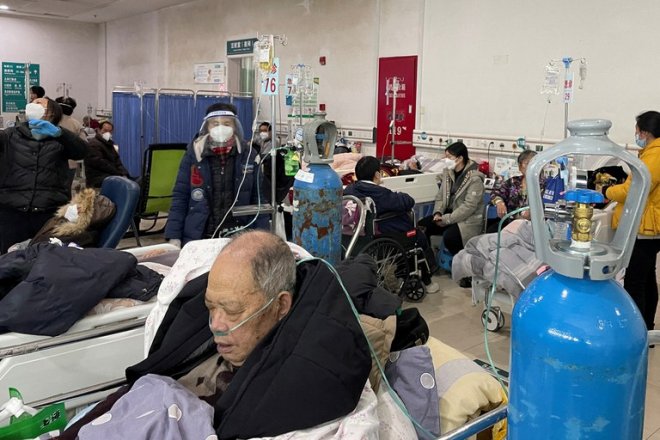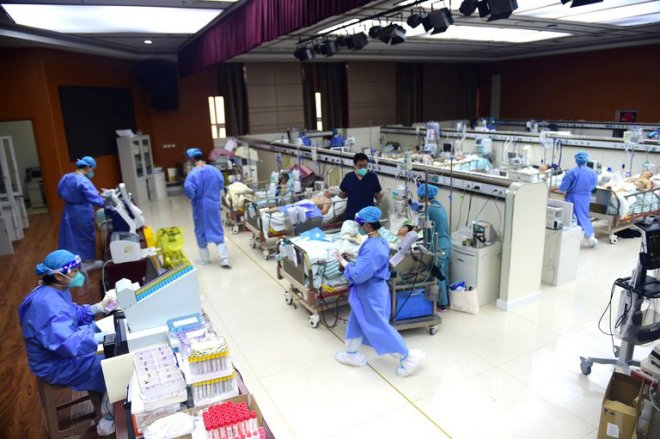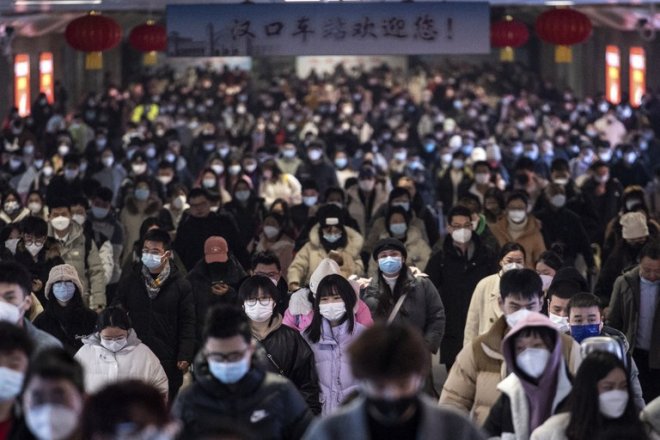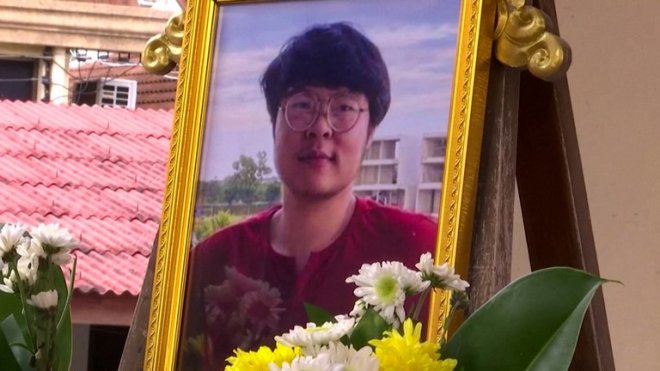China's COVID-19 death statistics 'certainly much higher' than reported: WHO
World Health Organization chief Tedros Adhanom Ghebreyesus has warned that China"s COVID-19 death figures are likely to be "much higher" than its government is saying, a view that is backed up by anecdotal evidence and sources on the ground."The moment they relaxed the COVID-19 restrictions, the number of deaths spiked sharply," said Chen Heyang, a person close to the civil affairs department in Wuhan, where the pandemic first emerged three years ago.
He said his home district of Huangpi had reported around 5,000 deaths in the month since the lockdowns and travel bans of zero-COVID were lifted. "There are around 900,000 people living in Huangpi district, and more than 5,000 deaths in this one month, which is several times the usual [death rate]," he said.
He said the civil affairs bureau has consequently seen a sharp spike in applications for funeral expenses to family members, as well as in applications for the cancellation of household registrations, a necessary piece of paperwork after someone dies.
In mid-January, almost 40,000 COVID-19 weekly deaths were reported to the global health body -- more than half of them in China -- while the true toll "is certainly much higher,” WHO chief Tedros told a committee meeting on Friday.
 Patients lie on beds in the emergency department of a hospital in Shanghai, China, Jan. 5, 2023. Credit: Reuters
Patients lie on beds in the emergency department of a hospital in Shanghai, China, Jan. 5, 2023. Credit: Reuters"As we enter the fourth year of the pandemic, we are certainly in a much better position now than we were a year ago, when the Omicron wave was at its peak, and more than 70,000 deaths were being reported to WHO each week," he said.
But he added the weekly death rate has risen since the start of December, with a spike in deaths following the lifting of the zero-COVID policy in China.
Surging death tolls
In other evidence, a healthcare worker from the eastern province of Jiangsu told Radio Free Asia that the civil affairs computer system in the province had also shown a sharp spike in cancellations of household registrations, called "hukou," implying a sharp rise in the number of deaths recently.
Healthcare professional Wang Ning said the number of cancellations had increased several times over since the lifting of COVID-19 restrictions at the beginning of December.
"For example, in this city, 100 people used to die in a month, but now it is basically between 300 and 500 people," Wang said, citing civil affairs bureau officials personally known to her.
A resident of Wuhan who gave only the surname Zhang for fear of reprisals said most cases and deaths are no longer being reported.
"We can see white chrysanthemums [for mourning] all over the place on the streets right now," Zhang said. "The pandemic worsened as soon as the government opened everything up."
 Medical workers attend to COVID-19 patients in an intensive care unit converted from a conference room, at a hospital in Cangzhou, Hebei province, China Jan. 11, 2023. Credit: China Daily via Reuters
Medical workers attend to COVID-19 patients in an intensive care unit converted from a conference room, at a hospital in Cangzhou, Hebei province, China Jan. 11, 2023. Credit: China Daily via ReutersHis claim was backed up by the New York-based Human Rights Watch, which said in a recent statement that "the authorities suppressed COVID death and infection numbers by preventing hospitals and families from registering Covid as a cause of death."
Repeated calls to the Wuhan municipal, Huangpi district and Jiang"an district civil affairs bureaus rang unanswered during office hours late last week.
An official who answered the phone at the civil affairs bureau in Wuhan"s Qiaokou district declined to comment on an increase in household registrations or funeral expense claims.
Lunar New Year wave?
A U.K.-based research firm recently predicted that the current COVID-19 wave could mean as many as 36,000 deaths a day over the Lunar New Year holiday period, as millions of people travel to their ancestral homes to spend time with loved ones.
Beijing says it has been fully "transparent" about its COVID-19 reporting, amid criticism on social media over the government’s reporting of the outbreak and widespread anecdotal evidence that funeral homes are working round the clock to keep pace with a huge rise in demand for cremations.
 Passengers traveling during the Lunar New Year arrive at Hankou railway station in Wuhan, in China"s central Hubei province, Friday, Jan. 27, 2023. Credit: AFP
Passengers traveling during the Lunar New Year arrive at Hankou railway station in Wuhan, in China"s central Hubei province, Friday, Jan. 27, 2023. Credit: AFPIn a related development, U.S.-based Chinese student Han Yutao said the ministry of education has said it will end recognition for overseas degrees and diplomas obtained through distance-learning.
The new requirement could force Chinese students to rush back to overseas campuses or risk being left with an unrecognized qualification, Han said.
"They may have chosen to take courses online because they didn"t want to leave their homes, and expecting them to suddenly live independently [overseas] is a tough ask," Han said. "But if they don"t leave, they will have spent that money for nothing."
He said the winter semester in the United States has been under way for more than a month, with scant accommodation available for late arrivals.
Chinese-Australian Wu Lebao said Beijing is keen to push the narrative that the pandemic is over.
"The propaganda is that the fight has been won, and the pandemic is over," Wu told Radio Free Asia on Tuesday. "All traces of zero-COVID must be erased ... which is a total politicization."
Translated by Luisetta Mudie. Edited by Malcolm Foster.
[圖擷取自網路,如有疑問請私訊]
|
本篇 |
不想錯過? 請追蹤FB專頁! |
| 喜歡這篇嗎?快分享吧! |
相關文章
AsianNewsCast























